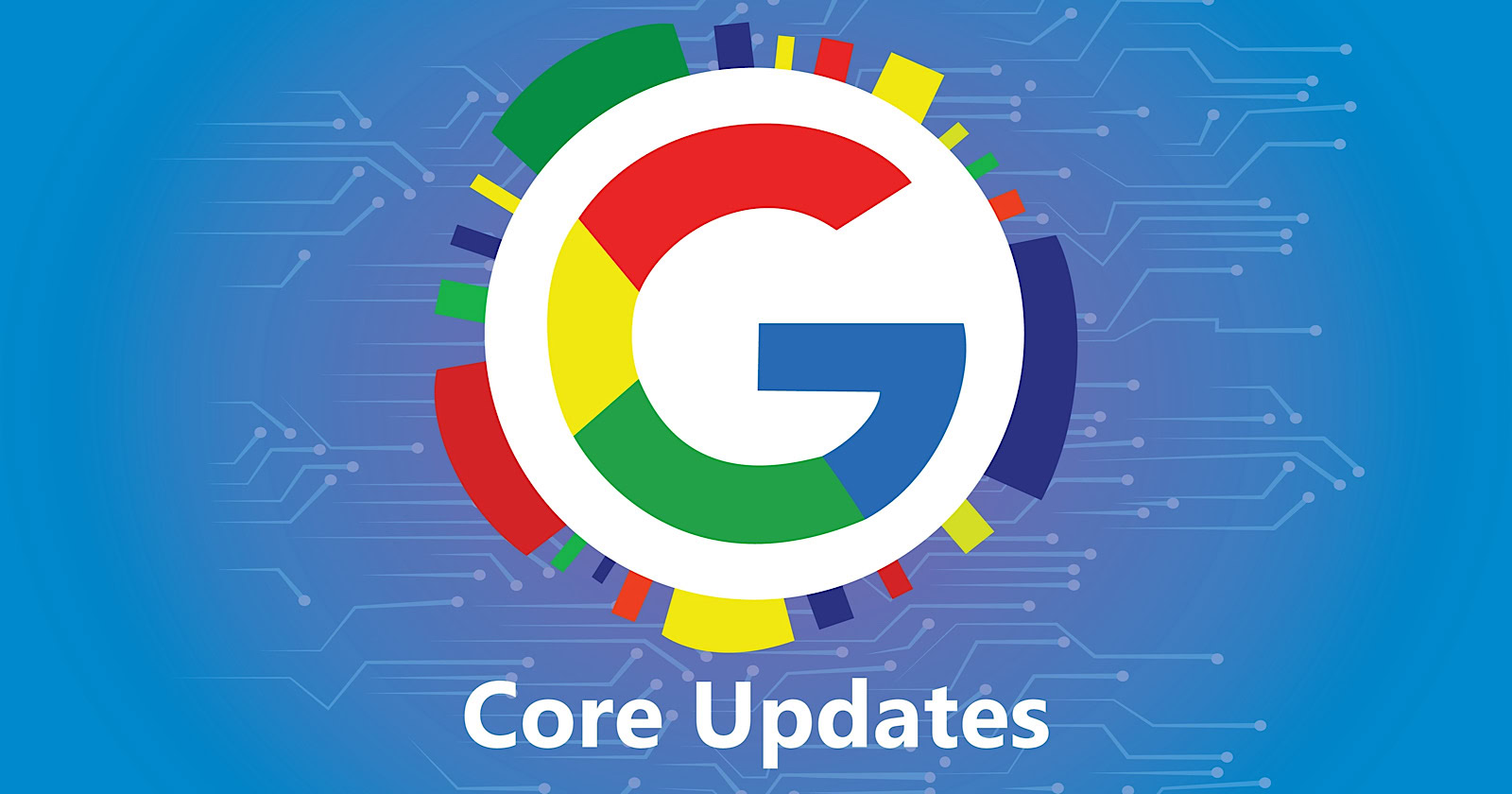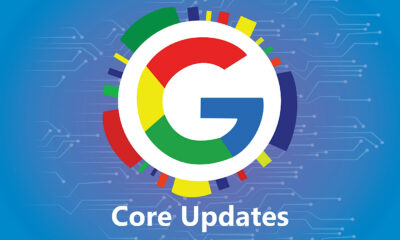SEO
How To Get Your Site Indexed Before Launch & Why It Matters

Are you planning to launch a new website? If so, your first step to acquiring traffic will be to get your website indexed on search engines like Google. This will allow your target audience to find you for relevant search queries sooner than later.
This article will look at the many reasons for getting your website indexed as quickly as possible and some ways to do it.
Why Does Fast Indexing By Search Engines Matter
There are many good reasons to get your site indexed in search engines or specific pages before the official launch.
They include:
- You want PR people like journalists, bloggers, and influencers to find you on launch day so they know where to link and which site to share. (If you have competitors with similar names or non-competitors with similar domains, the journalist may link to the wrong site.)
- Your site needs to render and index properly to attract new customers via search engines. By being indexed before launch, you can check the cache and troubleshoot any issues. (Some spiders will do this as well, but I always prefer to use the search engine when I can.)
- Launches mean big ad spending, and you’ll want the customers you are paying to gain exposure to find you easily.
- If the new product or category pages are not indexed, consumers will need to go through your home page or search functionality, adding extra steps to your conversion funnel.
- New sites can take weeks to get fully indexed. At that point, the “newness” of your company has already started to wear off.
How Long Does It Take To Get Indexed By Google
According to Google Advanced SEO documentation, crawling can take anywhere from four days to four weeks.
In a #AskGooglebot session with John Mueller, Google Search Advocate, he answers how long SEO takes for new pages.
Mueller begins with two disclaimers: Google doesn’t guarantee that all webpages will get indexed and that not everything that is indexed is shown to search users.
He continues to say that when a new page is published on the internet, it can take anywhere from several hours to several weeks to get indexed. He “suspects” that most suitable content is indexed within a week.
So, how do we get search engines to begin indexing our sites?
Request Indexing From Google
Google Search Console offers multiple ways for website owners to notify Google of a new website and ensure that the most important pages are crawled and indexed. You can start by submitting a sitemap and creating a robots.txt file.
You can also ask Google to crawl your URLs with the URL Inspection tool. They note that indexing can take up to a week or two.
Notify Bing Of New Website Content
Editor’s note: Like Google, Bing offers a set of tools that website owners can use to get their website on Bing’s radar. This includes their IndexNow protocol. It allows website owners to inform search engines of new website content instantly.
According to IndexNow.org,
“…it can take days to weeks for search engines to discover that the content has changed, as search engines don’t crawl every URL often. With IndexNow, search engines know immediately the ‘URLs that have changed, helping them prioritize crawl for these URLs and thereby limiting organic crawling to discover new content.’”
Tweet A Link To Your New Website
Google crawls Twitter at lightning pace. Twitter’s Help Center notes that:
“Keep in mind that the words you write in your Twitter profile or public Tweets may be indexed by Google and other search engines, and cause your profile or Tweets to come up in a search for those terms.”
In 2015, Google began indexing tweets to show in search results.
If you have a Twitter account and you see tweets showing up when you Google your name, try tweeting the link out and see if Google crawls your tweets to your website.
Get Links From Google Discover
One underutilized technique to get indexed is having backlinks from pages that get crawled by “discover” and “refresh.”
- Discover is Google’s new content discovery spider.
- Refresh is the bot Google uses to refresh the content within its indexes.
Once you have a blogger or website owner that will give you a backlink or two, see if they’ll log into Search Console.
In the settings area, you’ll be able to download a list of URLs Google crawls and when they crawl.
Find the pages that get crawled the most frequently and ask for the link from these pages. You can find instructions on accessing the crawl stats feature here.
Additional Tips On Search Indexation
You’ll also want to check a few things before the search engines arrive at your website to help ensure they index your most important pages.
- Your robots.txt should disallow duplicate pages, site search results, and parameter-based URLs like variants.
- The sitemap is listed in robots.txt and inside Search Console and only features self-canonicalized URLs.
- Once you leave staging, the meta robots tag has been updated to encourage indexing and following by using “index, follow.”
- You don’t have code other than metadata and resources to load the page inside the head of your site – that means excess scripts, plugins, tracking tools, etc.
- Test a spider as Googlebot or Bingbot, and see how it crawls your website. There are a ton of options, including free ones.
- Test “live URLs” in Search Console to ensure they render properly, and there are no errors.
- You have internal links to help guide the spiders to your most important pages within content, the main website navigation, and breadcrumbs.
Conclusion
It can be scary to request indexing and have your launch leaked, but would you rather journalists and customers find your competitors versus you and risk losing out on money and backlinks?
If you don’t index your website before launch, it could be a few weeks before consumers find you in search engines. Anyone who shows up for your brand or name may get your customers.
More Resources:
Featured Image: LITUSPRO/Shutterstock
SEO
Google March 2024 Core Update Officially Completed A Week Ago

Google has officially completed its March 2024 Core Update, ending over a month of ranking volatility across the web.
However, Google didn’t confirm the rollout’s conclusion on its data anomaly page until April 26—a whole week after the update was completed on April 19.
Many in the SEO community had been speculating for days about whether the turbulent update had wrapped up.
The delayed transparency exemplifies Google’s communication issues with publishers and the need for clarity during core updates
Google March 2024 Core Update Timeline & Status
First announced on March 5, the core algorithm update is complete as of April 19. It took 45 days to complete.
Unlike more routine core refreshes, Google warned this one was more complex.
Google’s documentation reads:
“As this is a complex update, the rollout may take up to a month. It’s likely there will be more fluctuations in rankings than with a regular core update, as different systems get fully updated and reinforce each other.”
The aftershocks were tangible, with some websites reporting losses of over 60% of their organic search traffic, according to data from industry observers.
The ripple effects also led to the deindexing of hundreds of sites that were allegedly violating Google’s guidelines.
Addressing Manipulation Attempts
In its official guidance, Google highlighted the criteria it looks for when targeting link spam and manipulation attempts:
- Creating “low-value content” purely to garner manipulative links and inflate rankings.
- Links intended to boost sites’ rankings artificially, including manipulative outgoing links.
- The “repurposing” of expired domains with radically different content to game search visibility.
The updated guidelines warn:
“Any links that are intended to manipulate rankings in Google Search results may be considered link spam. This includes any behavior that manipulates links to your site or outgoing links from your site.”
John Mueller, a Search Advocate at Google, responded to the turbulence by advising publishers not to make rash changes while the core update was ongoing.
However, he suggested sites could proactively fix issues like unnatural paid links.
“If you have noticed things that are worth improving on your site, I’d go ahead and get things done. The idea is not to make changes just for search engines, right? Your users will be happy if you can make things better even if search engines haven’t updated their view of your site yet.”
Emphasizing Quality Over Links
The core update made notable changes to how Google ranks websites.
Most significantly, Google reduced the importance of links in determining a website’s ranking.
In contrast to the description of links as “an important factor in determining relevancy,” Google’s updated spam policies stripped away the “important” designation, simply calling links “a factor.”
This change aligns with Google’s Gary Illyes’ statements that links aren’t among the top three most influential ranking signals.
Instead, Google is giving more weight to quality, credibility, and substantive content.
Consequently, long-running campaigns favoring low-quality link acquisition and keyword optimizations have been demoted.
With the update complete, SEOs and publishers are left to audit their strategies and websites to ensure alignment with Google’s new perspective on ranking.
Core Update Feedback
Google has opened a ranking feedback form related to this core update.
You can use this form until May 31 to provide feedback to Google’s Search team about any issues noticed after the core update.
While the feedback provided won’t be used to make changes for specific queries or websites, Google says it may help inform general improvements to its search ranking systems for future updates.
Google also updated its help documentation on “Debugging drops in Google Search traffic” to help people understand ranking changes after a core update.
Featured Image: Rohit-Tripathi/Shutterstock
FAQ
After the update, what steps should websites take to align with Google’s new ranking criteria?
After Google’s March 2024 Core Update, websites should:
- Improve the quality, trustworthiness, and depth of their website content.
- Stop heavily focusing on getting as many links as possible and prioritize relevant, high-quality links instead.
- Fix any shady or spam-like SEO tactics on their sites.
- Carefully review their SEO strategies to ensure they follow Google’s new guidelines.
SEO
Google Declares It The “Gemini Era” As Revenue Grows 15%

Alphabet Inc., Google’s parent company, announced its first quarter 2024 financial results today.
While Google reported double-digit growth in key revenue areas, the focus was on its AI developments, dubbed the “Gemini era” by CEO Sundar Pichai.
The Numbers: 15% Revenue Growth, Operating Margins Expand
Alphabet reported Q1 revenues of $80.5 billion, a 15% increase year-over-year, exceeding Wall Street’s projections.
Net income was $23.7 billion, with diluted earnings per share of $1.89. Operating margins expanded to 32%, up from 25% in the prior year.
Ruth Porat, Alphabet’s President and CFO, stated:
“Our strong financial results reflect revenue strength across the company and ongoing efforts to durably reengineer our cost base.”
Google’s core advertising units, such as Search and YouTube, drove growth. Google advertising revenues hit $61.7 billion for the quarter.
The Cloud division also maintained momentum, with revenues of $9.6 billion, up 28% year-over-year.
Pichai highlighted that YouTube and Cloud are expected to exit 2024 at a combined $100 billion annual revenue run rate.
Generative AI Integration in Search
Google experimented with AI-powered features in Search Labs before recently introducing AI overviews into the main search results page.
Regarding the gradual rollout, Pichai states:
“We are being measured in how we do this, focusing on areas where gen AI can improve the Search experience, while also prioritizing traffic to websites and merchants.”
Pichai reports that Google’s generative AI features have answered over a billion queries already:
“We’ve already served billions of queries with our generative AI features. It’s enabling people to access new information, to ask questions in new ways, and to ask more complex questions.”
Google reports increased Search usage and user satisfaction among those interacting with the new AI overview results.
The company also highlighted its “Circle to Search” feature on Android, which allows users to circle objects on their screen or in videos to get instant AI-powered answers via Google Lens.
Reorganizing For The “Gemini Era”
As part of the AI roadmap, Alphabet is consolidating all teams building AI models under the Google DeepMind umbrella.
Pichai revealed that, through hardware and software improvements, the company has reduced machine costs associated with its generative AI search results by 80% over the past year.
He states:
“Our data centers are some of the most high-performing, secure, reliable and efficient in the world. We’ve developed new AI models and algorithms that are more than one hundred times more efficient than they were 18 months ago.
How Will Google Make Money With AI?
Alphabet sees opportunities to monetize AI through its advertising products, Cloud offerings, and subscription services.
Google is integrating Gemini into ad products like Performance Max. The company’s Cloud division is bringing “the best of Google AI” to enterprise customers worldwide.
Google One, the company’s subscription service, surpassed 100 million paid subscribers in Q1 and introduced a new premium plan featuring advanced generative AI capabilities powered by Gemini models.
Future Outlook
Pichai outlined six key advantages positioning Alphabet to lead the “next wave of AI innovation”:
- Research leadership in AI breakthroughs like the multimodal Gemini model
- Robust AI infrastructure and custom TPU chips
- Integrating generative AI into Search to enhance the user experience
- A global product footprint reaching billions
- Streamlined teams and improved execution velocity
- Multiple revenue streams to monetize AI through advertising and cloud
With upcoming events like Google I/O and Google Marketing Live, the company is expected to share further updates on its AI initiatives and product roadmap.
Featured Image: Sergei Elagin/Shutterstock
SEO
brightonSEO Live Blog

Hello everyone. It’s April again, so I’m back in Brighton for another two days of Being the introvert I am, my idea of fun isn’t hanging around our booth all day explaining we’ve run out of t-shirts (seriously, you need to be fast if you want swag!). So I decided to do something useful and live-blog the event instead.
Follow below for talk takeaways and (very) mildly humorous commentary. sun, sea, and SEO!
-
SEARCHENGINES7 days ago
Daily Search Forum Recap: April 19, 2024
-

 WORDPRESS6 days ago
WORDPRESS6 days ago13 Best HubSpot Alternatives for 2024 (Free + Paid)
-

 WORDPRESS7 days ago
WORDPRESS7 days ago7 Best WooCommerce Points and Rewards Plugins (Free & Paid)
-

 MARKETING6 days ago
MARKETING6 days agoBattling for Attention in the 2024 Election Year Media Frenzy
-

 MARKETING6 days ago
MARKETING6 days agoAdvertising in local markets: A playbook for success
-

 SEO7 days ago
SEO7 days agoGoogle Answers Whether Having Two Sites Affects Rankings
-

 SEARCHENGINES6 days ago
SEARCHENGINES6 days agoGoogle Core Update Flux, AdSense Ad Intent, California Link Tax & More
-

 AFFILIATE MARKETING6 days ago
AFFILIATE MARKETING6 days agoGrab Microsoft Project Professional 2021 for $20 During This Flash Sale




![The Current State of Google’s Search Generative Experience [What It Means for SEO in 2024] person typing on laptop with](https://articles.entireweb.com/wp-content/uploads/2024/04/The-Current-State-of-Googles-Search-Generative-Experience-What-It.webp-400x240.webp)
![The Current State of Google’s Search Generative Experience [What It Means for SEO in 2024] person typing on laptop with](https://articles.entireweb.com/wp-content/uploads/2024/04/The-Current-State-of-Googles-Search-Generative-Experience-What-It.webp-80x80.webp)










You must be logged in to post a comment Login